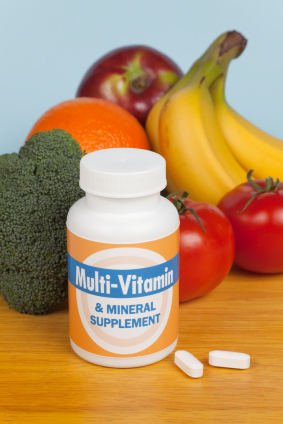Vitamin D (Cholecalciferol)
Overview:
Vitamin D, otherwise known as the sunshine vitamin, is significant
in normal body growth and development. In particularly, vitamin D
is used to absorb calcium and phosphorus to create bone. Great sources
of this supplement include fortified milk, oily fish, liver, and eggs.
How This Vitamin Works in Your Body:
Absorbs calcium and phosphorus to aid in the development of bones
and teeth
Promotes normal cell growth and maturation
Prevents rickets
Maintains a healthy nervous and immune system
Treats low blood calcium with patients with kidney disease
Potential reduction in breast and colon cancer
Aging symptoms may be treated
The Following May Benefit from Taking Vitamin D:
Kids living in places with little sunshine
Those who need additional nutritional intake
People over 55 who receive little sunshine, such as those in nursing
homes
Pregnant or breastfeeding women
Substance abusers
Those under prolonged stress
Those with partially removed intestinal tracts
Dark-skinned individuals
Babies who are breastfed
Vegan vegetarians
Cystic fibrosis patients
Where This Vitamin is Found:
Cod-liver oil
Egg substitutes
Halibut-liver oil
Herring
Mackerel
Salmon
Sardines
Sunlight
Tuna
Vitamin-D-fortified milk
How to Use:
Available as:
Liquid: the best form due to its high bioavailability and fast absorption.
Always choose liquid as your first choice when supplementing your
diet.
Tablets: available
Recommended Daily Intakes
Men: 200 IU
(over 50) 400 IU
(over 70) 600 IU
Women: 200 IU
(over 50) 400 IU
(over 70) 600 IU
Pregnancy: 200 IU
Lactation: 200 IU
Cautions:
Consult your doctor if you have:
Have planned pregnancy while taking vitamin D
Epilepsy
Heart or blood-vessel disease
Kidney, liver or pancreatic disease
Chronic diarrhea
Intestinal problems
Sarcoidosis
Over 55:
Higher potential for adverse reactions and side effects.
Pregnancy:
Always consult doctor during pregnancy. Abnormalities within the
fetus may occur in too high of a dose. Remember to keep within the
DRI.
Breastfeeding:
It is vital to normal growth and development of the child to get
the correct intake of vitamin D. Always consult doctor during lactation.
Remember to keep within the DRI.
Storage:
Heat and/or moisture may alter the vitamin. Refrigeration is recommended.
Symptoms of Deficiency:
Symptoms include bone pain and tenderness and muscle weakness. In
children, rickets may occur, in which bones lose calcium and become
soft and curved. Without proper intake, there is an increased risk
of osteoporosis, arthritis, and cancer.
Overdose:
Signs of Overdose:
High blood pressure
Irregular heartbeat
Nausea
Weight loss
Seizures
Abdominal pain
Appetite loss
Mental-and physical-growth retardation
Premature hardening of arteries
Kidney damage
Side Effects:
Reaction or effect : What to do
Loss of appetite : Discontinue. Refer to your doctor soon.
Constipation : Discontinue. Refer to your doctor soon.
Diarrhea : Discontinue. Consult doctor immediately.
Dry mouth : Discontinue. Refer to your doctor soon.
Headache : Discontinue. Consult your doctor immediately.
Increased thirst : Discontinue. Refer to your doctor soon.
Mental contusion : Discontinue. Consult your doctor immediately.
Nausea or vomiting : Discontinue. Consult your doctor immediately.
Unusual tiredness : Discontinue. Refer to your doctor soon.
Interactions:
Interacts with : Combined effect
Antacids with aluminum : Absorption of vitamin D reduced.
Antacids with magnesium : People with kidney failure should be aware
of possibly too much magnesium
in the blood.
Anticonvulsants : Vitamin efficacy may be reduced.
Barbiturates : Vitamin efficacy may be reduced.
Calcitonin : Calcitonin effect reduced when treating hypercalcemia.
Calcium (high doses) : Risk of hypercalcemia increased.
Cholestyramine : Vitamin absorption reduced.
Colestipol : Vitamin absorption reduced.
Cortisone : Vitamin absorption reduced.
Digitalis preparations : Heartbeat irregularities increased.
Diuretics, thiazide : Hypercalcemia risk increased.
Hydration : Vitamin efficacy may be reduced.
Mineral oil : Absorption of vitamin D increased.
Phosphorus- containing medicines : Risk increased of too much phosphorus
in blood.
Primidone : Vitamin efficacy may be reduced.
Vitamin-D derivatives : Increased potential for toxicity due to
additive effects.
Alcohol : Depletes storage of vitamin D in liver.

